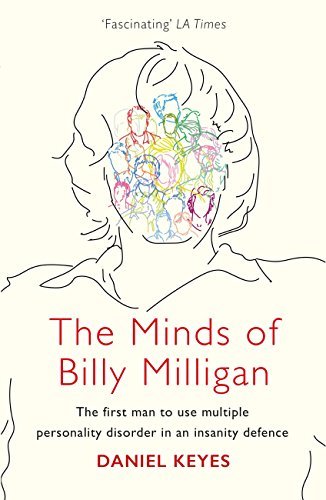
The Minds of Billy Milligan: The book that inspired the hit series The Crowded Room starring Tom Holland
Daniel Keyes
About the Author

Daniel Keyes
Questions & Answers
Multiple personality disorder (MPD), also known as dissociative identity disorder, involves the presence of two or more distinct identities or personality states within an individual. These identities can have their own behaviors, memories, and perceptions, often emerging in response to severe trauma or abuse. The impact on an individual's life and identity is profound:
-
Fragmented Identity: The person experiences a fragmented sense of self, with different identities controlling behavior and memory at various times. This can lead to confusion about personal identity and history.
-
Complex Interactions: The interactions between different identities can be chaotic, with some identities being unaware of others' existence. This can cause internal conflict and difficulty in maintaining relationships.
-
Memory Disturbances: Individuals with MPD often have gaps in their memory, with some identities having no memory of events experienced by others.
-
Behavioral Changes: Different identities may exhibit different behaviors, which can be challenging for others to understand and can lead to legal issues, as seen in the case of Billy Milligan.
-
Psychological Impact: The disorder can lead to significant emotional distress, including depression, anxiety, and post-traumatic stress disorder (PTSD).
-
Treatment Challenges: Treating MPD is complex and often requires long-term therapy, which can be challenging for both the individual and their therapists.
In summary, MPD significantly disrupts an individual's life and identity, affecting their ability to function, maintain relationships, and remember their past.
The interplay between different personalities within an individual, as depicted in "The Minds of Billy Milligan," profoundly affects behavior and decision-making. Each personality brings unique traits, memories, and motivations, leading to a complex interplay that can result in unpredictable actions. For instance, Billy Milligan's personalities had varying levels of intelligence, emotional responses, and moral compasses. This diversity often led to conflicting decisions and actions, as personalities with differing goals and values fought for control. The dominant personality at any given time dictated behavior, which could range from violent acts to artistic expression. The lack of integration among these personalities also resulted in memory gaps and difficulty in forming coherent identity, further complicating decision-making and personal growth. This interplay highlights the complexity of human psychology and the challenges faced by individuals with multiple personality disorder.
Using multiple personality disorder (MPD) as a defense in criminal cases raises significant ethical and legal implications:
Ethically, the primary concern is whether the diagnosis is genuine or a facade. There's a risk of exploiting the disorder for legal advantage, potentially allowing criminals to avoid punishment. This raises questions about the authenticity of the diagnosis and the integrity of the legal system.
Legally, the main issue is the burden of proof. The defense must prove that the defendant's mental state at the time of the crime was affected by MPD, which can be challenging. Additionally, there's the risk of the diagnosis being used to excuse criminal behavior, potentially undermining the principle of personal responsibility.
Another legal concern is the treatment of individuals diagnosed with MPD. If they are deemed not guilty by reason of insanity, they may be sent to mental institutions, raising questions about the quality and appropriateness of their care. Moreover, the precedent set by such cases could influence future legal decisions regarding mental health defenses.
Societal perception and treatment of mental illness significantly impact individuals with dissociative identity disorder (DID). Misunderstanding and stigma often lead to discrimination, isolation, and inadequate care. People with DID may face skepticism from healthcare providers, who might not recognize or believe in the disorder, leading to misdiagnosis or lack of treatment. This can exacerbate their condition, as they may not receive the specialized care needed for DID. Additionally, societal attitudes can lead to social exclusion, as others may be uncomfortable or fearful of interacting with someone with DID. This can further isolate individuals and hinder their recovery. Effective treatment, which includes understanding and acceptance of DID, is crucial for the well-being of those affected.
Exploring and sharing the story of someone with multiple personality disorder can have significant consequences. On one hand, it can raise awareness about the condition, educate the public, and provide insight into the complexities of the human mind. This can lead to better understanding, empathy, and potentially improved treatment for individuals with the disorder.
On the other hand, there are risks. Revealing personal details about someone with a mental illness can lead to stigmatization, discrimination, and potential harm to the individual's privacy. Additionally, the portrayal of the disorder in a sensationalized manner can perpetuate misconceptions and contribute to the marginalization of those affected. Moreover, the process of sharing such a story can sometimes disrupt the therapeutic process and the stability of the individual's identity. Balancing the benefits of sharing such a story with the potential risks is a delicate task.